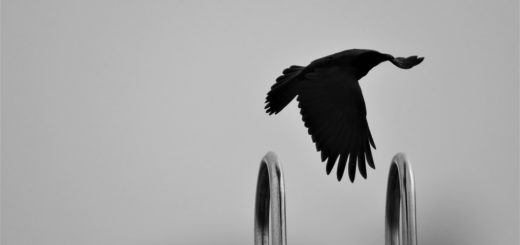Not Praying, But Faking
Denzel Washington, who outdid himself at the Academy Awards in his career-defining performance as a fake mediator between an unprovoked assailant and his victim, and then as a fake crier in sympathy with Will Smith’s temptation by the devil — who, he supposedly told Smith with fake sagacity, “comes for you” at your highest moment — has now attempted to take the most revolting role of his career on the road. Speaking at a religious pomposity event, Washington said that he jumped into the fray at the Oscars in order to pray with Will Smith, because:
Who are we to condemn? I don’t know all the ins and outs of this situation, but I know the only solution was prayer, the way I saw it, the way I see it.
Who are we to condemn? Who is talking about condemnation? We are talking about blame and fault, which require only an ordinary human sense of right and wrong — too much to ask, apparently, from a man with the wisdom of a higher being in his heart. For him, the only solution was, and is, prayer.
No, the only solution, in a rational universe, is to face up to the obvious fact that you just watched someone you thought was a friendly acquaintance engaging in his own entitled and elitist version of the knockout game normally engaged in by street punks who randomly punch unsuspecting old men or ladies on the street. Smith took a completely unprovoked and inappropriate cheap shot at a smaller, unsuspecting, fifty-seven-year-old man. He smiled as he turned away, proud of himself for smacking the smaller man, and hoping that his domineering wife would be impressed. He did this with forethought — he had to overcome his initial laughter at Chris Rock’s mild joke about his wife, change his mind to performative anger, and then get up and saunter up the stairs and runway to Rock’s position on stage — and he did it knowing that this was an event being shown on live television. Given all these factors, it is reasonable to assume he did it with the intention of asserting his power over the smaller man by inflicting maximum humiliation upon his undeserving victim.
The only solution, as Denzel Washington says, may indeed be prayer — but not prayers of empathy with the thug playing the knockout game at the expense of all rules of civility, and of everyone else’s night of “glamor.” Prayers for a return to the normalcy and decency of a world in which cowardly street punks like Will Smith are no longer treated as men, no longer respected as “artists,” no longer aggrandized as role models or paid for their non-talents. For a world in which such worthless nothings as Will Smith, should they manage to puncture the decency of normal society once in a while, are immediately and summarily ushered out of that world without any option to return — not asked to leave, but escorted from the building, by force if necessary, and then locked out forever.
Denzel Washington, who proved once and for all at this year’s Oscars that he is no Sidney Poitier, chose instead to pray for the acceptance and immediate reintegration of the hip-hop gangster, the knockout game thug, the violent creep, because “the devil came for him at his highest moment.” No, the breakdown and degradation of American popular culture “came for him,” many years ago, and his tuxedoed thug show last week was just a particularly obvious manifestation of its damage.
By the way, as for Washington’s crying show during Smith’s speech, if you believed it was anything but a staged pose for the cameras — “Ready for my closeup, Mr. De Mille” — it is time for your first acting lesson. When I saw that conveniently timed closeup of Washington’s face in tears when Smith cited his pseudo-religious hokum during his acceptance speech, I thought of two things: Glory and Gong Li.
In Glory, Washington’s first noteworthy role, he played a rebellious member of an all-black Civil War regiment. In one emotional scene, he is punished for disobeying authority, specifically by several lashes. In a grand sweep of sentimental significance, Washington’s character takes his lashes while staring at the white commanding officer who ordered the punishment. As the whip strikes his back, again and again, Washington’s eyes, in a single unbroken camera shot, slowly well up with great, terrible tears — the same ones he showed the world during Will Smith’s Oscar speech. How do I know? Because I watched him do it, the way actors do it — the way many actors around that room were obviously doing it during Smith’s bullcrap speech full of excuses for himself: He didn’t blink. The most memorable example of this standard acting technique that I have ever seen — ordinary craft elevated by exaggeration into art — was by the great Chinese actress Gong Li, who in the opening scene of Raise the Red Lantern wells up just this way, as director Zhang Yimou’s camera holds her in full, long closeup. Try it at home: If you don’t blink, you will tear up. Then watch the moment during Will Smith’s speech when he mentions Washington, and the director cuts to a closeup of the latter’s teary face. He does not blink.
Not praying, but faking.
When does good acting become bad faking? When it is done not in the name of honest sentiment or melodramatic sentimentality, but merely as self-promotion, self-aggrandizement, special pleading for an ugly and indefensible cause.



